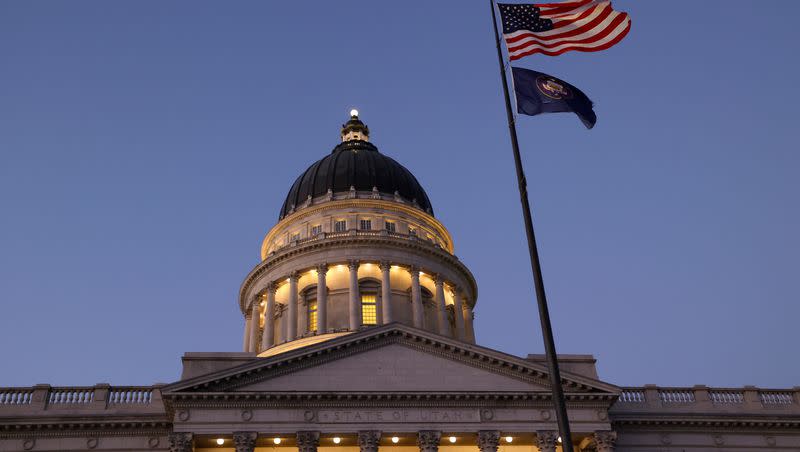Utah Senate committee rebuffs bill targeting imposition of racial views; measure likely dead

A measure meant as a guard against the possibility of Utah businesses imposing racial views on their employees — paralleling the successful push against diversity, equity and inclusion programs at the state's universities — is likely dead for the legislative session.
State Rep. Tim Jimenez, R-Tooele, indicated Monday that HB111 won't be moving forward after the measure failed during a committee hearing on Friday. The Utah House approved the measure 54-20 on Feb. 1 but the Senate Business and Labor Committee voted 5-2, against a motion to send it to the full Senate.
"HB111 is dead this year. I will likely work on it during the interim and scope it for public employment," Jimenez said in a message to KSL.com. That is, he said, he'll investigate the possibility of reworking the measure so it applies just to public-sector employment, not private-sector employment.
Some critics tied HB111 to HB261, the controversial measure signed into law by Gov. Spencer Cox on Jan. 30 that dismantles diversity, equity and inclusion programs at public universities and other public entities. HB261 backers have criticized certain diversity initiatives as discriminatory, essentially because white people aren't explicitly included within their parameters, among other things. HB261 foes, though, saw the measure as a step back in the fight for the civil rights of people of color and other historically marginalized groups.
In that context, Jimenez put forward HB111 as a means of prohibiting private employers from making their workers ascribe to certain racial beliefs. Such beliefs include the idea that one race, gender, color or national origin is superior to another; the notion that members of one race, gender, color or national origin should be subject to discrimination because of the actions by those same groups in the past; and more.
"All it simply says is we can't tell you what to believe," Jimenez said.
The measure, he said at Friday's hearing, wouldn't force businesses to change what they regard as acceptable employee behavior at the workplace or stop any employee training programs. Rather, it would aim to curtail the sort of thing he cited during House debate on the measure — apparent instances when he said law enforcement workers have been required to believe "that certain minorities are inherently oppressed."
Sen. Curtis Bramble, R- Provo, chairman of the Business and Labor Committee, said existing law already covers the sort of prohibitions outlined in HB111. He voted against recommending the bill, also advising Jimenez to keep working on it with an eye to getting support from the business sector.
Darlene McDonald, who favors diversity, equity and inclusion initiatives and testified against HB111, also said existing federal law would prohibit the sort of thing Jimenez's bill purports to target. At a deeper level, though, she sees something more at work in the measure — a bid to chip away at the ability of private businesses to have their own diversity, equity and inclusion programs.
"Basically it was the business version of HB261," McDonald told KSL.com on Monday. She runs the 1Utah Project and ran last year for the U.S. House as a Democrat.

